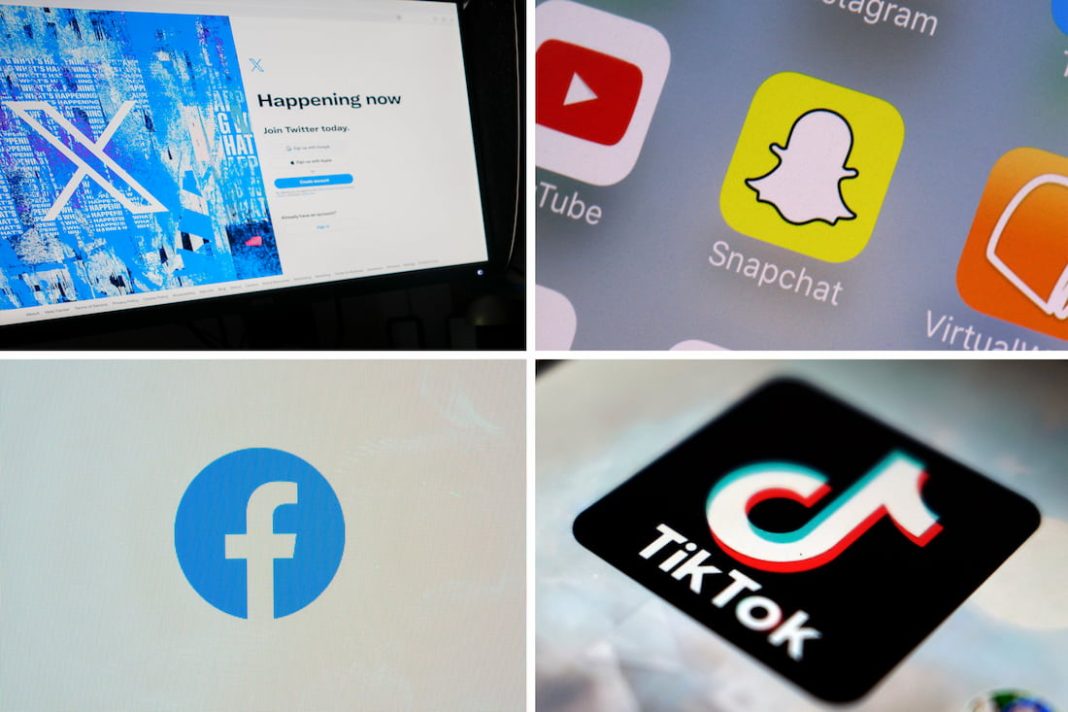Age restrictions on social media would do little to mitigate online harms for young people, a parliamentary committee has been told.
An inquiry examining the impact of social media on society has been told calls for age-verification measures on online platforms were misdirections for broader reforms needed on sites such as Facebook, X and TikTok.
Age limits were “highly likely to make things worse”, Alannah and Madeline Foundation chief executive Sarah Davies told the hearing.
“The issue with raising the age of access for social media is that it’s the wrong question and I think the danger is that we all rush off to a red herring and try and find a solution in a red herring where there actually isn’t going to be one,” she said on Wednesday.
“If you make (the age limit) 16, we’re not going to stop the 11-year-old or whoever accessing it, but immediately they are going to be facing into … all of the risks that we know sit there.”
The federal government provided $6.5 million in the May budget for a pilot program for age-assurance technology amid calls to introduce protections.
The technology would be developed to stop children accessing online content such as pornography.
Opposition Leader Peter Dutton has vowed to ban children under 16 accessing social media should the coalition win the next election, by putting in age-verification measures.
Ms Davies said barring social media use would have detrimental effects on young people and called for broader changes to platforms and their content.
“Social media and tech is hugely positive if it is safe to use and age-appropriate to use, because it gives children and young people access to people like them, tribes, community support,” she said.
“All apps, all websites, all digital products, all services, should automatically provide the highest level of privacy setting by default for all users under the age of 18. It’s really not hard.”
Reset Tech Australia’s Rys Farthing told the hearing the debate surrounding age verification played into the hands of tech companies looking to skirt around other issues.
“It’s (the platforms’) playbook to start talking about age verification the moment we talk about any particular safety enhancements or safety standards that could be implemented for kids and I think it’s a bit of a trap,” Dr Farthing said.
“There are multiple regulatory reforms that we could put in place that would fundamentally transform the digital architecture for young people without requiring age assurance, but it’s the only thing that tech wants us to talk about.”
But group Collective Shout, which campaigns against the sexualisation of girls, told the inquiry age verification should one of multiple measures used to keep children safe online.
Its director Melinda Tankard Reist said social media companies had failed in their responsibility to protect users.
“This is one lever, we need to use every lever at our disposal … let’s try everything, throw everything we can at this to limit the damage that is being done, especially to vulnerable children and young people,” she said.
“If these were standard brick and mortar buildings, they’d be shut down by now, it seems that they have been able to do anything they want.”
Ms Tankard Reist took aim at social media platforms enabling adult and sexualised content being offered to young people online.
“Too much responsibility is placed on young people to monitor their own safety online and that onus should be on big tech and social media companies,” she said.
Lifeline 13 11 14
Kids Helpline 1800 55 1800 (for people aged 5 to 25)
By Andrew Brown in Canberra



